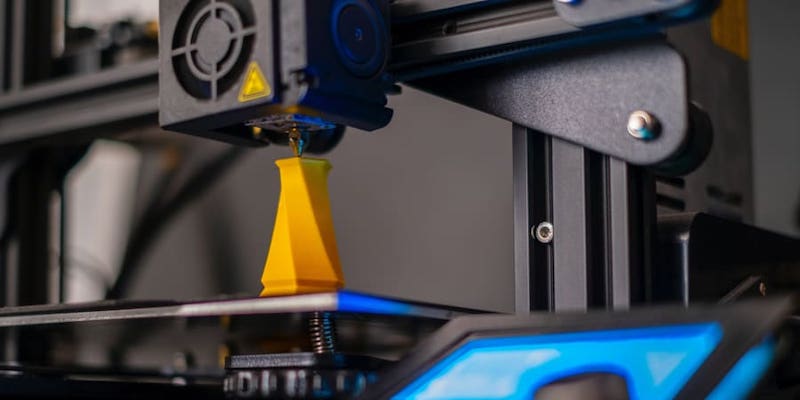3D printing could be one approach to making fashion more sustainable. — Picture by Osman Talha Dikyar / Unsplash
NEW YORK, March 31 — Imagine 3D printing a pair of shoes and then recycling them endlessly — or almost. It might sound like something out of science fiction, but it’s a concept that’s set to revolutionize the fashion industry. Many start-ups, like Hilos in the United States, are now embracing 3D printing technology to reduce waste, and produce goods in a more ethical way.
How many pairs of shoes do you have in your closet? And, more importantly, how many do you actually wear day to day? Style is the worst enemy of sustainable fashion, it seems, but an American start-up has chosen to combine the two to reduce the environmental impact of our wardrobe without compromising comfort or design. Hilos, a Portland-based company, won two awards for its innovative project at the 2022 edition of the South by Southwest (SXSW) festival held in March in Texas.
“Hilos is the result of a team who questioned the way shoes were made in order to do better. We are designers, engineers, and artists pioneering a new way forward, powered by technology, driven by design, anchored in sustainability,” reads the brand’s official website. And to achieve this, the founders have chosen 3D printing, a solution envisaged by many companies to reduce their impact on the planet.
A virtually endlessly recyclable shoe
Other major fashion brands have explored 3D printing in the past, but without moving into large-scale production. Hilos now markets no less than four shoe models, to accompany casual, work or evening wear, all made by 3D printing. This technology helps address many environmental issues, such as overproduction or stock shortages, since the start-up only produces on demand, sustainability, by limiting water use and waste, and circularity, since the shoes are fully recyclable.
“We see shoes not as a set of component parts assembled together, but as an integrated system working to support and propel you. By developing new, patented forms of shoemaking adapted for digital manufacturing, we’ve pushed past the boundaries of traditional production,” explain the founders on the brand’s official website.
With this technology, Hilos manages to combine the traditional insole, midsole and outsole into a single 3D-printed platform, allowing for fully customized sizing in the process. Every element of the shoes on sale — clogs, mules, loafers and heels — has also been designed and manufactured to be dismantled, then recycled for a new lease of life. Customers are invited to return used models for a 15 per cent discount on their next purchase.
Last fall, it was Heron Preston who was innovating with 3D printed shoes. In association with the American technology company Zellerfeld, the multi-talented designer presented the very first pair of 3D printed sneakers available to the public at large. It was a very limited beta launch, but one that promised the near-infinite recycling of each pair of shoes to adapt to new trends. All of which shows a definite interest in this technology, which could clearly be one of the solutions for making fashion’s future more sustainable. — ETX Studio


